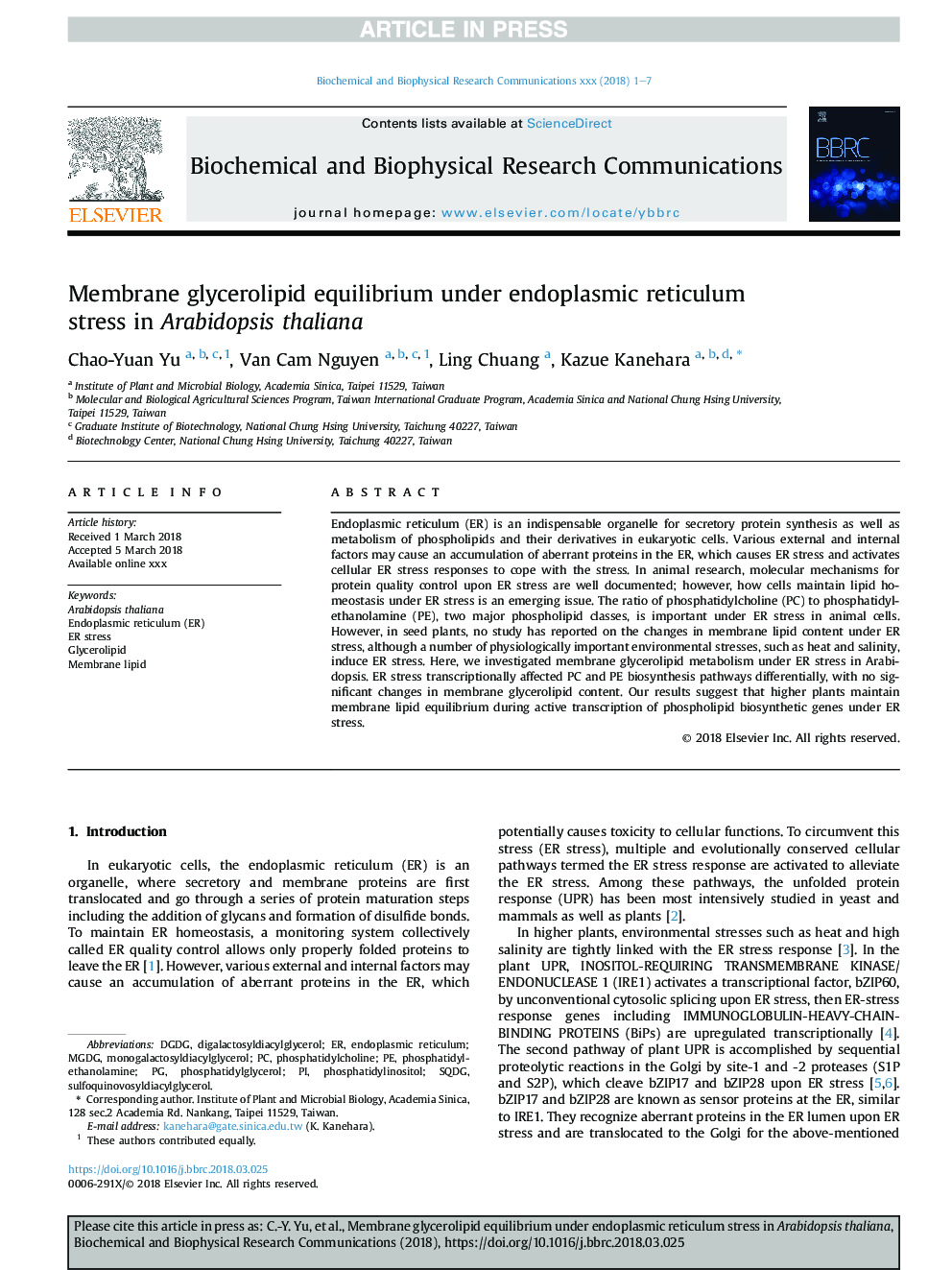| Article ID | Journal | Published Year | Pages | File Type |
|---|---|---|---|---|
| 8292750 | Biochemical and Biophysical Research Communications | 2018 | 7 Pages |
Abstract
Endoplasmic reticulum (ER) is an indispensable organelle for secretory protein synthesis as well as metabolism of phospholipids and their derivatives in eukaryotic cells. Various external and internal factors may cause an accumulation of aberrant proteins in the ER, which causes ER stress and activates cellular ER stress responses to cope with the stress. In animal research, molecular mechanisms for protein quality control upon ER stress are well documented; however, how cells maintain lipid homeostasis under ER stress is an emerging issue. The ratio of phosphatidylcholine (PC) to phosphatidylethanolamine (PE), two major phospholipid classes, is important under ER stress in animal cells. However, in seed plants, no study has reported on the changes in membrane lipid content under ER stress, although a number of physiologically important environmental stresses, such as heat and salinity, induce ER stress. Here, we investigated membrane glycerolipid metabolism under ER stress in Arabidopsis. ER stress transcriptionally affected PC and PE biosynthesis pathways differentially, with no significant changes in membrane glycerolipid content. Our results suggest that higher plants maintain membrane lipid equilibrium during active transcription of phospholipid biosynthetic genes under ER stress.
Keywords
Related Topics
Life Sciences
Biochemistry, Genetics and Molecular Biology
Biochemistry
Authors
Chao-Yuan Yu, Van Cam Nguyen, Ling Chuang, Kazue Kanehara,
